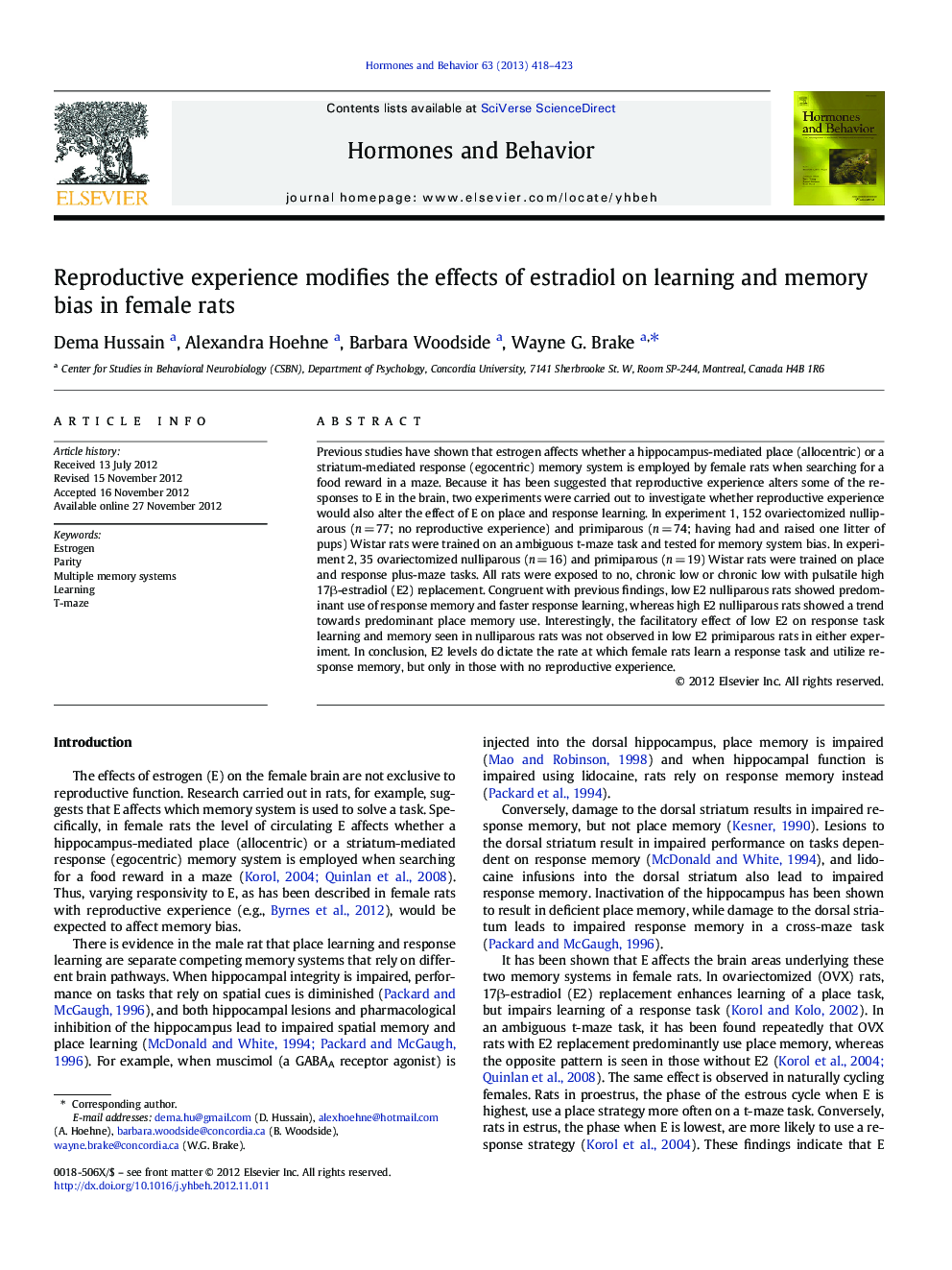| Article ID | Journal | Published Year | Pages | File Type |
|---|---|---|---|---|
| 323990 | Hormones and Behavior | 2013 | 6 Pages |
Previous studies have shown that estrogen affects whether a hippocampus-mediated place (allocentric) or a striatum-mediated response (egocentric) memory system is employed by female rats when searching for a food reward in a maze. Because it has been suggested that reproductive experience alters some of the responses to E in the brain, two experiments were carried out to investigate whether reproductive experience would also alter the effect of E on place and response learning. In experiment 1, 152 ovariectomized nulliparous (n = 77; no reproductive experience) and primiparous (n = 74; having had and raised one litter of pups) Wistar rats were trained on an ambiguous t-maze task and tested for memory system bias. In experiment 2, 35 ovariectomized nulliparous (n = 16) and primiparous (n = 19) Wistar rats were trained on place and response plus-maze tasks. All rats were exposed to no, chronic low or chronic low with pulsatile high 17β-estradiol (E2) replacement. Congruent with previous findings, low E2 nulliparous rats showed predominant use of response memory and faster response learning, whereas high E2 nulliparous rats showed a trend towards predominant place memory use. Interestingly, the facilitatory effect of low E2 on response task learning and memory seen in nulliparous rats was not observed in low E2 primiparous rats in either experiment. In conclusion, E2 levels do dictate the rate at which female rats learn a response task and utilize response memory, but only in those with no reproductive experience.
► Low E2 nulliparous rats predominantly use response memory to solve a maze task. ► High E2 nulliparous rats show a trend towards predominant use of place memory. ► Low E2 nulliparous rats learn a response task faster than a place task. ► Low E2's effect on response learning and memory was not observed in primiparous rats. ► Effects observed in nulliparous females disappear with reproductive experience.
